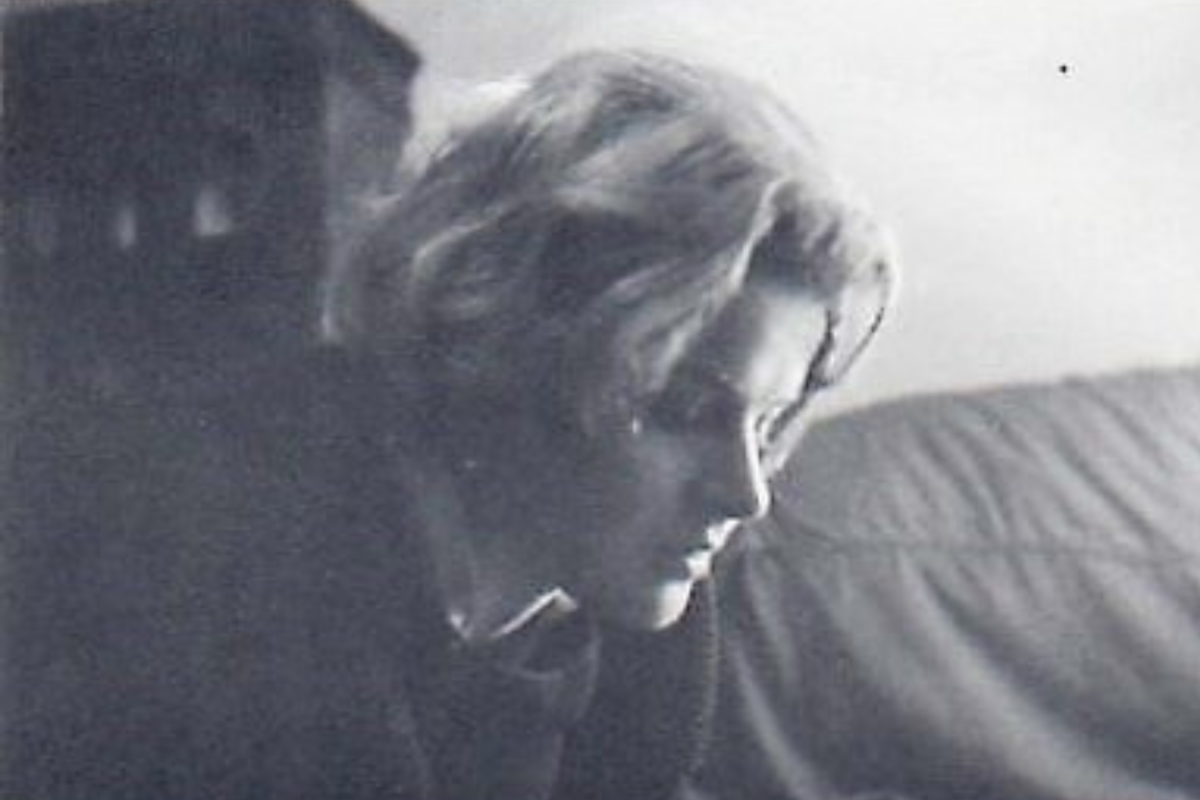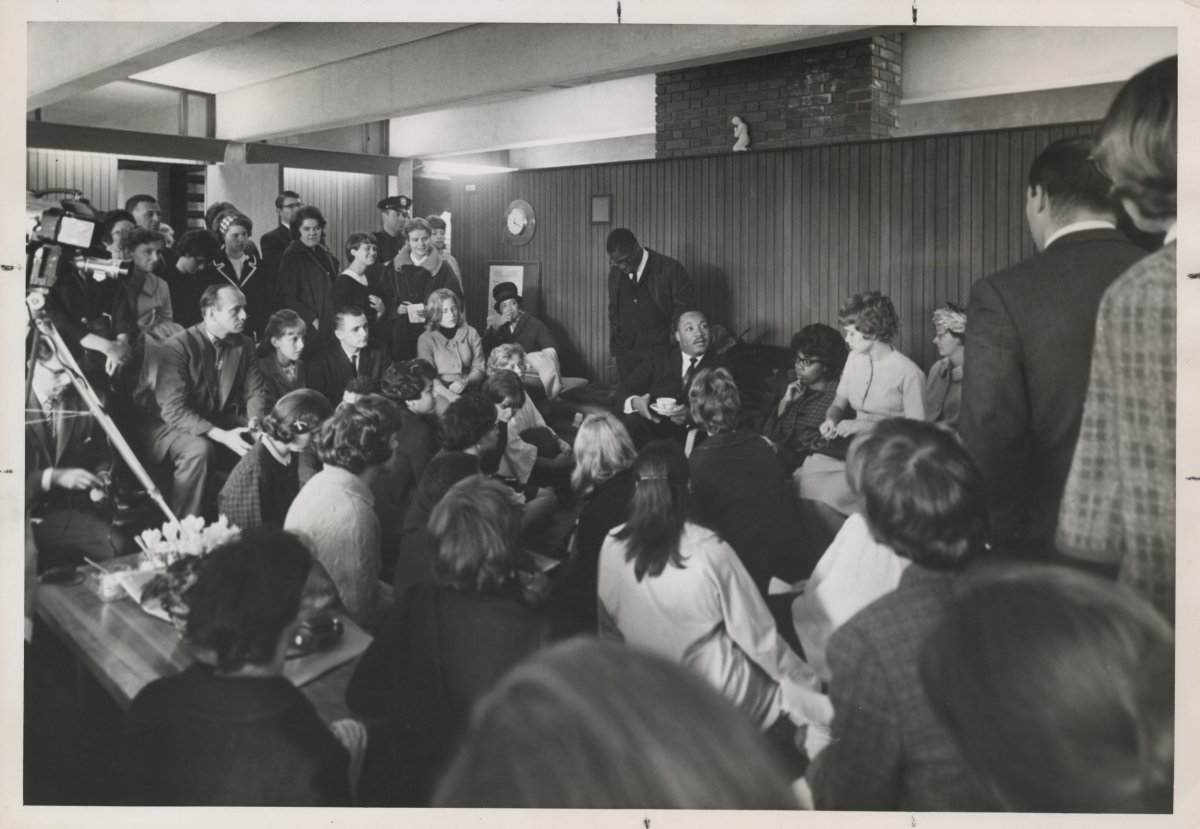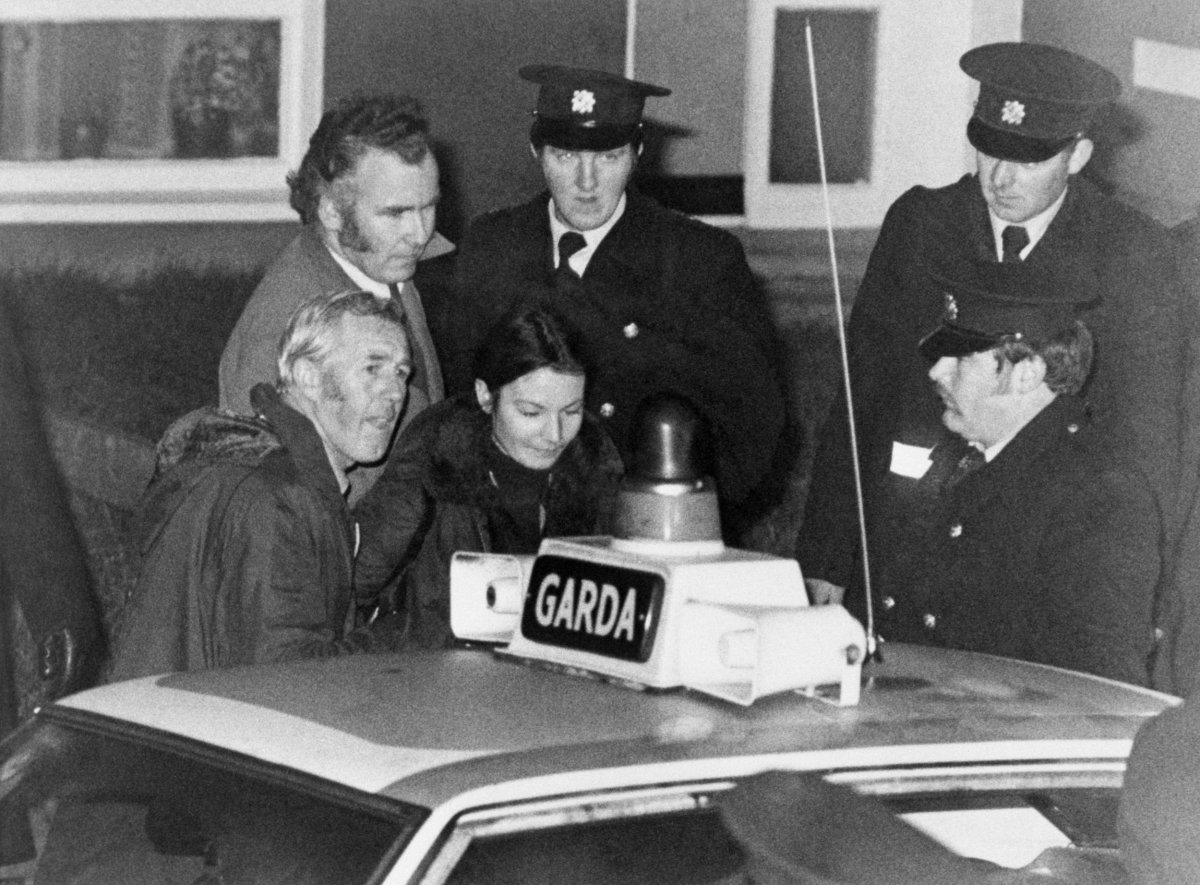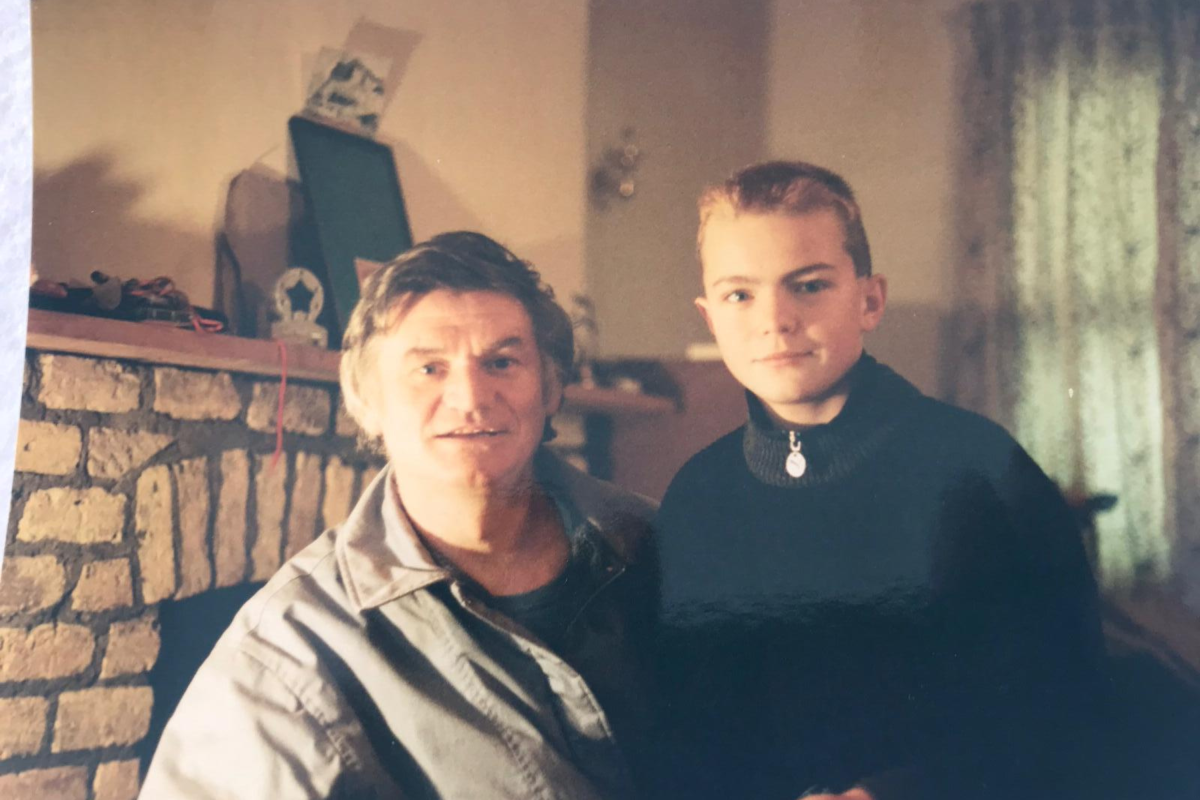She was an upper-class woman who was presented to Queen Elizabeth II during her debutante season and ended up as one of the chief bomb makers in an Irish terrorist organization.
The story of Rose Dugdale has intrigued me my entire life and for three years I visited her in a Dublin nursing home to write her biography.
I wanted to know why someone born into fantastic privilege ends up dropping bombs from a helicopter onto a police station in Northern Ireland. And why did someone who attended a girl's school in London's best neighborhood help design massive explosives that cause havoc in her native city?

Dugdale's funeral is in Dublin today [Wednesday]. She died in the nursing home and she is expected to have a full Irish Republican Army (IRA) funeral, with her coffin draped in the Irish flag.
I will be attending her funeral today with almost as many questions as I had when I first started visiting her more than five years ago.
I say almost because some questions have been answered, at least partially. Dugdale came from a caring, wealthy family. There is no childhood trauma, there is no hidden despair that she was trying to avenge.
There is only her mother wanting her two daughters to look perfect at all times, to have their hair immaculate, to dress formally in gowns and elbow gloves for dinner at their country estate, to speak with the received pronunciation of the English upper class.
But such formalities, surrounded as they were by a loving family environment, do not come close to explaining Dugdale's lunge into radical politics.
If it was her family to blame, then her sister Caroline might have turned out the same. Instead, Caroline married a Conservative Party MP and bought into the establishment that Dugdale was trying to destroy.
The answer to the enigma of Rose Dugdale lies in her own mind. She was a naturally spontaneous, rebellious person and deeply unhappy with the gender roles of 1950s Britain.
For the debutante season, upper-class women were first invited to Buckingham Palace to bow before the queen before spending a husband-hunting season of formal dances and social events.
Dugdale hated her debutante season and only agreed to it on condition that she be allowed to take the Oxford University entrance exams.
At Oxford, she had a lesbian relationship with her economics professor, which was deeply unorthodox in 1950s Britain. It set her on a lifelong course of rebellion.
While in Oxford, she and her friend, Jenny Grove, donned men's clothing and wigs and entered the Oxford Union debating society, which at the time banned women from membership.
Their daring stunt made national headlines and helped to quickly change the rules. Women were soon allowed to become members, with several newspapers carrying photos of Dugdale and her friends celebrating the victory.

It encouraged her to believe that all of society needed to be changed. After her Oxford graduation, and a philosophy postgrad from Mount Holyoke College in Massachusetts, she set up an office in Tottenham, London to give away her fortune to the poor.
People lined up for free fuel, clothes, bail payments, furniture. Whatever the poor of north London needed, Dugdale was there to provide it.
At her office she met Wally Heaton, a socialist radical who taught her about the worsening situation in Northern Ireland, where the Irish minority were in open rebellion against the British majority and demanding to be unified with their compatriots in the south of Ireland.
It was the tragic, violent rebellion Dugdale had been looking for and for the rest of her life, she dedicated herself to the IRA, a terrorist organization that was to kill more than 2,000 people in its attempt to drive Britain out of Northern Ireland.
Dugdale and her new boyfriend, IRA man Eddie Gallagher, pulled off an audacious helicopter hijacking in 1974 and then dropped bombs on a police station in Northern Ireland. Nobody was injured, but it earned her instant infamy.
The helicopter bombing was, she told me, the best day of her life.
While on the run after the helicopter raid, she pulled off what was at the time the world's largest art heist in support of IRA prisoners. She was soon caught red-handed with stolen old master paintings and sentenced to nine years in prison.
In prison, she gave birth to her son, Ruairi. Gallagher, along with 19-year-old accomplice, Marion Coyle, then kidnapped Dutch industrialist, Tiede Herrema, in an attempt to have Dugdale and two other IRA prisoners released. They were eventually arrested and Gallagher was jailed for 20 years.

Upon her release, Dugdale threw herself into the anti-drugs vigilante scene in Dublin, a time during which she would walk up to heroin dealers and tell them they would be shot if they didn't leave the city.
She also met Jim Monaghan, who would become the IRA's chief weapons developer.

Together, they spent many days in an isolated farmhouse in the west of Ireland developing new missiles and explosives for the IRA's campaign in the north.
One of her big breakthroughs occurred when a flood in an underground bunker destroyed the IRA's main bomb fuse supply and Dugdale had to come up with an alternative. She suggested deconstructing Semtex plastic explosives into its constituent ingredients, RDX and PETN.
This technique was successful and was used in the Bishopsgate and Canary Wharf bombings in London's financial district that caused billions of dollars of damage and focused the British government on finding a solution to Northern Ireland's seemingly intractable political violence.
That culminated in the 1998 Good Friday peace agreement, which Dugdale was to later enthusiastically embrace.
In later years, and after suffering a stroke, she moved to a Dublin nursing home, where she was the only resident who was not a retired nun.
I would visit her every weekend and found her life among the nuns an odd living arrangement for a Marxist revolutionary.
Her death has been met with outpourings of lamentation from Sinn Fein, the IRA's political wing, which is now, in more peaceful times, the largest political party in both Northern Ireland and in its southern neighbor, the Republic of Ireland.
However, not everyone views Dugdale's life in such favorable terms.
Gerry Pollard, whose family were servants in the house where Dugdale pulled off the art heist, felt an intense anger towards her. His terrified 14-year-old brother had been forced to show Dugdale around the house while she picked off priceless Goyas and Vermeers from the wall.
Pollard wanted me to tell Dugdale that the real revolutionary hero in Ireland was Donogh O'Malley, a former government minister in the Republic of Ireland who introduced free education.
By doing so, O'Malley allowed poor children like the Pollards to attend secondary school and university for the first time.
"That was the revolution we needed in Ireland," Pollard told me. "Not upper-class revolutionaries like Rose Dugdale. Please tell her I said that."
The next time I visited her nursing home, I told her what he said. She replied only that she "respected everyone's views" and that she had no regrets.
Sean O'Driscoll is a senior crime and courts reporter with Newsweek. He is the author of Heiress, Rebel, Vigilante, Bomber—The Extraordinary Life of Rose Dugdale.
Correction 03/27/24, 13:58 p.m. ET: This article was updated to correct the names Tiede Herrema and Marion Coyle.
Uncommon Knowledge
Newsweek is committed to challenging conventional wisdom and finding connections in the search for common ground.
Newsweek is committed to challenging conventional wisdom and finding connections in the search for common ground.
About the writer
Sean O'Driscoll is a Newsweek Senior Crime and Courts Reporter based in Ireland. His focus is reporting on U.S. law. ... Read more
To read how Newsweek uses AI as a newsroom tool, Click here.








